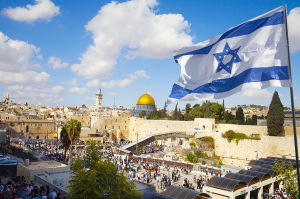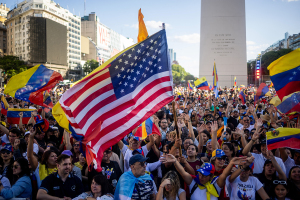The controversial topic of the Lord's Supper

During the Protestant Reformation, one the most controversial topics was the one concerning the Lord’s Supper. It was so contentious that not only Protestants and Catholics divided on it but many other Protestants. And even among the Reformers there were sharp disagreements — Zwingli believed in the memorial/symbolic nature of the Lord’s supper while Calvin defended a spiritual presence of Christ in the elements.
However, among all the Reformers no one ever wrote as much on the Lord’s Supper as Peter Martyr Vermigli. Being an ex-Augustinian prior from the heart of Italy, Vermigli more than any other was able to show the inconsistencies behind the Catholic Mass as well as other Protestant views on the matter.[1] In his Treatise on the Eucharist, Vermigli exposes the flaws in transubstantiation going all the way back to the Church Fathers and Church councils, answering each objection in a typical Scholastic way.
Yet, to get the more experiential and devotional side of Vermigli one has to go to his Exhortation to the Mystical Supper of the Lord to see how all these systematic truths come together. He emphasizes the nature of the open invitation behind the Lord’s Table, for all Christians. He illustrates this point by saying how insulting it would be for guests at a feast to reject their host’s food after being invited to dinner. Vermigli warns the believer to not engage in the same type of behavior around the Lord’s Table.
It is interesting to see the reverse attitude toward the Lord’s Supper that Vermigli, in his particular context, is displaying here: If you don’t take the elements, you receive wrath. Vermigli wants to dismantle every single excuse believers have for not partaking of the Supper. Whatever the excuse may be, it’s unacceptable in the mind of God.
Vermigli recalled the parable of the ones who were invited to the banquet of the Master and turned down the invitation (Luke 14:15-24). As a result, they were deemed unworthy and were rightly condemned. Vermigli applies this parable to those who repeatedly refuse to partake of the Supper. The sad thing is that a lot of people have been persuaded — perhaps out of too much self-examination — into thinking that they can virtually never participate in the Supper.
Instead, Vermigli tries to redirect the Christian’s mind away from this excessive introspectiveness to the reality of the union we have with Christ. As Christ laid down His life for our salvation so all true Christians are bound to perform this memorial of Christ’s death in their regular assemblies. Abstaining continuously is such a serious offense because it’s a rejection of one of Christ’s main means of grace to us.
In a way, by refusing this act of intimate communion with Christ, we are not only refusing His personal invitation to be united with Him, but we are also treating Him essentially as a stranger. This is what Vermigli calls making a “mockery of Christ’s mysteries.”[2] How can someone ponder the words “take and eat, all of you,” and then ignore them completely?
So, by placing this emphasis so strongly upon the need to come to the Lord’s table in light of our union with Christ, Vermigli’s exhortation encourages us to worship Christ even more in Communion, and thereby give Him more glory.
In our day and age, many Christians in our conservative Reformed circles often abstain from the Lord’s Supper only because of some unwarranted anxieties they might have. This is sad and unnecessary. Separating ourselves from such clear and glorious invitation is detrimental to our Christian walk and is a direct insult to Christ Himself. We must do better.
[1] McLelland, J. C., The Life, Early Letters & Eucharistic Writings of Peter Martyr (The Sutton Courtenay Press, Baskerville, 1989), 111.
[2] Peter Martyr Vermigli, Exhortation to the Mystical Supper of the Lord (The Peter Martyr Library, Vol. V, Thomas Jefferson University Press, Kirksville, 1999), 275-ff.
Dr. Ottavio Palombaro is an Italian Theologian, Sociologist and Cultural Anthropologist. His research focused on the contemporary relevance of the sociological theory of Max Weber on Protestantism, as well as studies on the history of religion with a focus on Calvinism. He studied at the University of Rome "La Sapienza" (B.A.), at the University of Turin (M.A.), at the University "Statale" of Milan (Ph.D.) at Tyndale Theological Seminary in Netherlands, at the Puritan Reformed Theological Seminary in Grand Rapids, Michigan U.S.A. (M.Div.) and at the Free University of Amsterdam (Th.D.). His research interests gravitate around Sociology of Religion, Church history and Calvinistic theology.



























